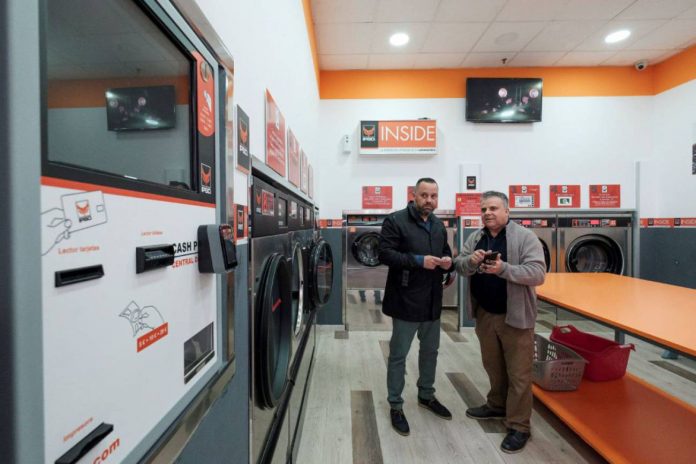
Commercial laundries are big business in the Canarian village where I live. There are several that operate seven days a week with their main business being from the hotels in the south of the island, which provide important work for local residents.
After all, who do you think washes and irons those blistering white sheets on the beds of all those hotels? It is unlikely to be the hotel staff, and convoys of large vans trundle from the hotels in the south of the island to our village every day of the year.
Walking past the entrances to these laundries, I am greeted with the heady heat and smell of freshly laundered sheets. I keep well away from the areas where used sheets and other bedding arrive for processing!
Do you remember the days when laundrettes were a feature of most high streets, or at least within easy access of the town centre? Most seem to have disappeared in recent years, or turned into dry clean only businesses.
I have not seen a launderette for many years. For students and those who could not afford an expensive washing machine of their own, laundrettes were a life safer. In the days before a plethora of coffee and betting shops took over the high street, launderettes provided a valuable social experience, as well as somewhere to warm up on a cold day and to meet and chat with other people.
Times have moved on, and washing machines are no longer the major, expensive purchase that they once were, and prices for a good, basic model seem to fall each year, and especially during the winter sales. Even so, there are still many people who have neither the cash, or indeed a home in which to install one.
Even for those that live in towns that are fortunate enough to have their own local launderette, this does not answer the problem for those who cannot afford to use them. It is with this problem in mind that the City Council in Las Palmas in Gran Canaria came up with the imaginative idea of a social laundry, which is said to be the first of its kind in Spain.
Social laundries already operate in a number of countries. They are created out of necessity and reflect an awareness that society must do whatever it can to help those in need. The homeless, the disabled and those in great financial need, as well as older people who have nobody to wash their linen and clothes, all benefit from such a service.
In Las Palmas, twenty vulnerable families in the city can now use the laundry service to wash and dry their clothes twice a week in large industrial washing machines and driers, completely free of charge.
The scheme is currently a pilot project, the City Council hopes to extend the scheme across the entire city. It is imaginative schemes, such as the one in Las Palmas, that helps to provide a welcome and necessary respite for those in need. I hope that this initiative spreads rapidly and that we see far more social laundries for those that need support.
If you enjoyed this article, take a look at my websites: http://barriemahoney.com and http://thecanaryislander.com or read my latest book, ‘Letters from the Canary Islands’ and Spain’ (ISBN: 9780995602731). Available in paperback from Amazon, Waterstones and all good bookshops, as well as Kindle editions.
Join me on Facebook: @barrie.mahoney
© Barrie Mahoney




